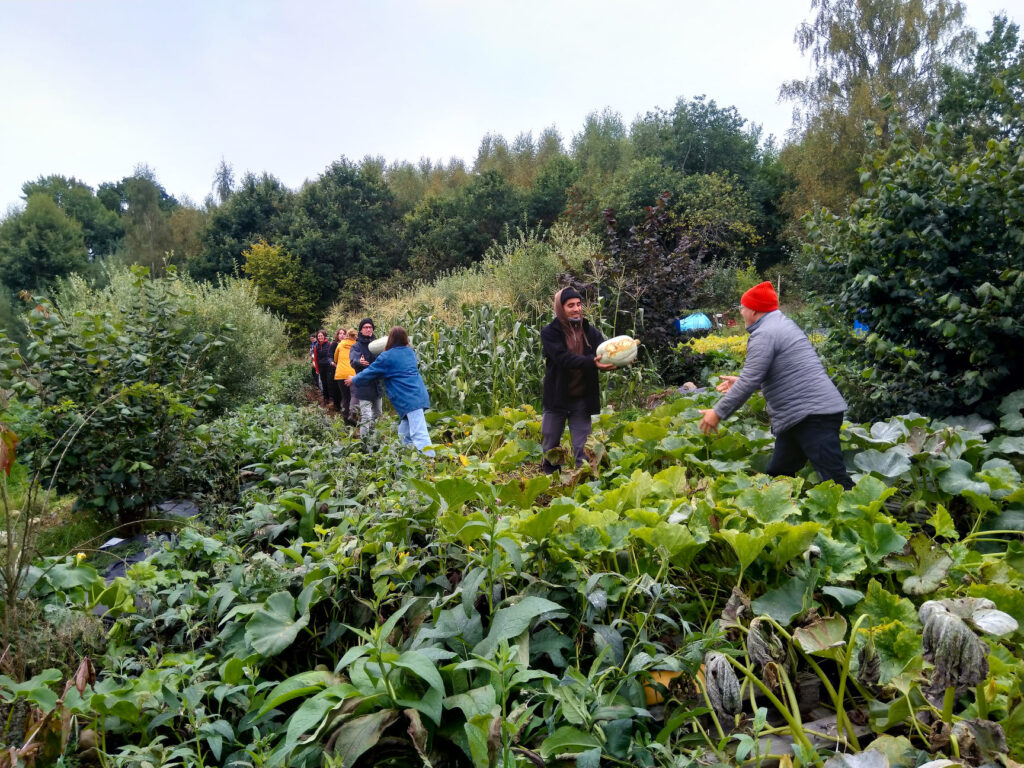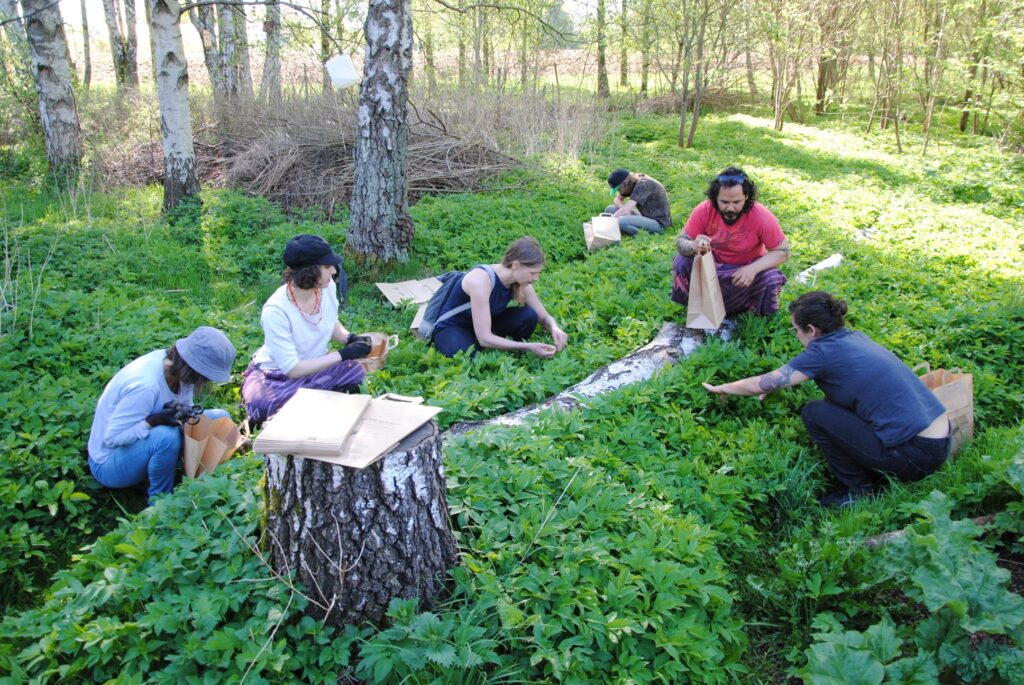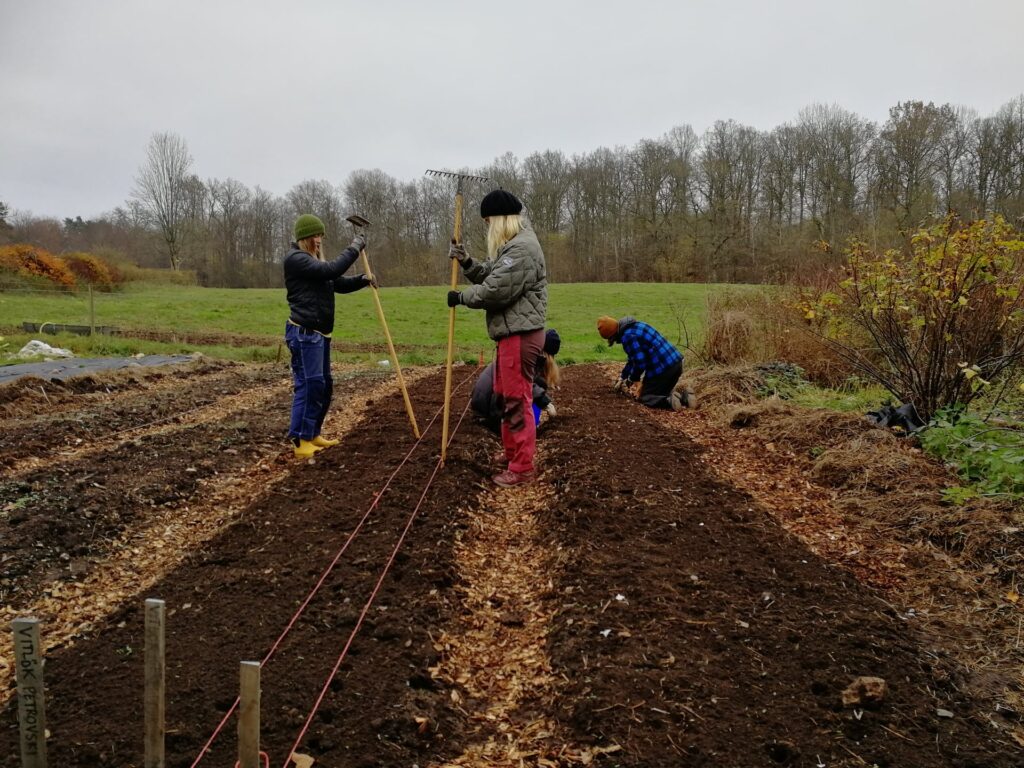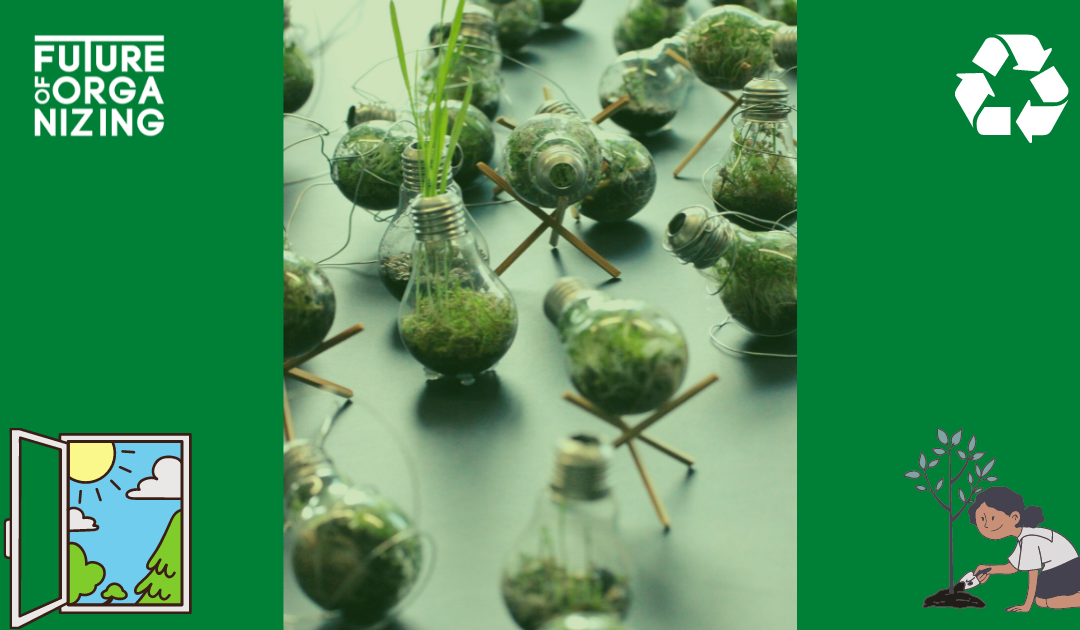Future of Organizing supports permaculture and sociocracy in Sweden by donating part of the profit from the Swedish version of the book: “Teal.Tillit.Transparens“. Holma Folkhögskolan is mentioned as a good sociocracy example in the book “Teal.Trust.Transparency” and the rector Andreas is regarded as one of Europe’s foremost sociocracy experts.

Holma folkhögskola
Why is PermaCulture important?
Permaculture is a farming concept that seeks to make agricultural systems as ecofriendly as possible. The main intention is that nothing should be wasted and everything should benefit people or the environment. Holma Folkhögskola is an example of this concept. Their main motive is to educate people for a better and more sustainable world. A variety of courses are offered at this high school in order to maintain a balance in which people with varying life experiences can meet and exchange perspectives.
In the 1970s, two Australians, David Holmgren, and Bill Mollison came up with the term permaculture. Permaculture consisted of 3 ethics: “Earth care, human care, and fair share”. Permaculture is designed for humans, to produce their fundamental wants, like food and water without excessive waste. But it covers more than that now. Right now permaculture has a big effect on economics. The distribution of goods and resources is extremely important in economics and permaculture helps society to achieve it effectively. Another ethic of permaculture: Capturing and storing energy. According to Holmgren, by establishing mechanisms that collect resources while they are plentiful, we will be able to use them in times of need. The expression “make hay while the sun shines” reminds us that we only have a limited amount of time to capture and store energy for later use.

Holma folkhögskola students.
Holmgren’s main principles of permaculture
It first starts with “observe and interact”. Understanding your surroundings, their climate, the weather, the soil is an important element in permaculture. Doing something without understanding the environment can do more harm than good. Holmgren also highlights the significance of applying self-regulation and accepting feedback. Self-regulation includes reducing your own consumption first. Sustainability starts with each member of the society. The last part of this principle emphasizes that in order to grow and learn you have to be able to accept feedback. “Produce no waste” is one of the bases of permaculture as well. As mentioned above, permaculture wants to achieve its target with no waste. It includes “reduce, reuse, recycle, repair”. Permaculture is about creatively and attentively using your resources and responding to change.

Holma folkhögskola students.
Corporate Sustainability and Social Responsibility
Corporate sustainability prioritizes growth and profitability in three sectors of society through deliberate corporate operations. The objective is to offer long-term benefits to shareholders while not putting people, the environment, or the economy at risk. It is a wide term that encompasses both corporate sustainability and corporate social responsibility. In a nutshell, corporate social responsibility assists an organization in becoming socially accountable—to itself, its stakeholders, and the general public. The recently published book “Teal. Tillit. Transparens” written by Alicia and Rolf Medina presents a systemic model for the future of organizing that strives to democratize workplaces and create more humane organizations. The model has twelve areas, CSR and sustainability in one of them. The book contains concrete examples, practical tools, and guidance that provide new insights about how to work with social responsibility and sustainability.




